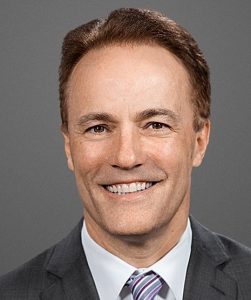
Rocket science met the trading world in the latest episode of CFTC Talks.
The podcast is hosted by CFTCs Chief of Market Intelligence Andrew Busch and he had on Mark Higgins the Chief Operating Officer of Beacon Platform, Inc.’s.
Beacon Platform “is a financial technology company that delivers a cloud-based, end-to-end development and production platform.” According to their site.
Higgins, as Busch mentioned, has his Ph.D. an astro-physics from Queens University in Kingston, Ontario.
“So, in fact, you are a rocket scientist,” Busch noted.
Busch further noted that Higgins first foray into trading was building a trading and risk management system in the electricity and natural gas derivatives market.
Higgins said he got a job on a power and gas trading desk because the power markets deregulated in 1996 ushering in trading desks at these companies.
“Wall Street figured out kind of in the early 1990s that physicists and engineers had kind of a lot of the kind of math and skills, So, quantitative finance was popping up on the radar of grad students like me.” Higgins said.
Higgins said after two years at the power company he moved first to foreign exchange business Goldman Sachs and beyond and witnessed “the digitization of the market. “
“The job of a market making trader in spot FX used to be two main things, they make prices on individual deals as clients called up and then, every deal, they take the other side of that risk position. So, they had to manage the risks of the portfolio that resulted from all those client deals.” Higgins said of the digital evolution. That was kind of their second job. With the move to electronic trading, both of those jobs are performed almost entirely by computer programs now, and the job of the few remaining traders has changed so to one that instead of managing each deal, they sit at the control of the machine and make sure it behaves.”
The digitization of trading has had several consequences Higgins noted
- Bid/ask spreads have shrunk exponentially
- Greater price transparency
- Volume increased “by a factor of ten”
Higgins said one thing he’s noticed was that when he joined Goldman in 1998, spot FX traders rarely used what is now called algorithmic trading.
“They didn’t care about them at all. They didn’t really use technology. It was pretty much a technology light business, not very quantitative at all.”
Busch said he worked at a smaller bank trading FX spot at the time and he “loved those machines” because he thought it allowed him to get the same kind of trading quality as the bigger banks.
“I was at a smaller bank. What I loved about it is it leveled the playing field versus the voice brokers who always seemed to benefit the higher volume trading clients that were out there versus me this little guy in the Midwest. So, I loved those machines.”
Busch singled out Electronic Broker System and Reuters Matching as two early trading platforms which Busch felt leveled the playing field as he described.
Now those businesses are all about technology and analytics; they can’t run without them,” Higgins concluded of the evolution of FX spot trading now.








